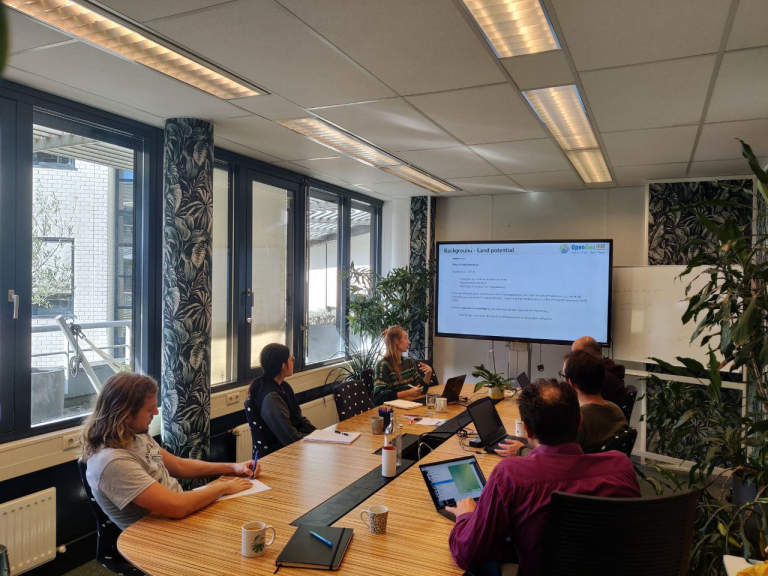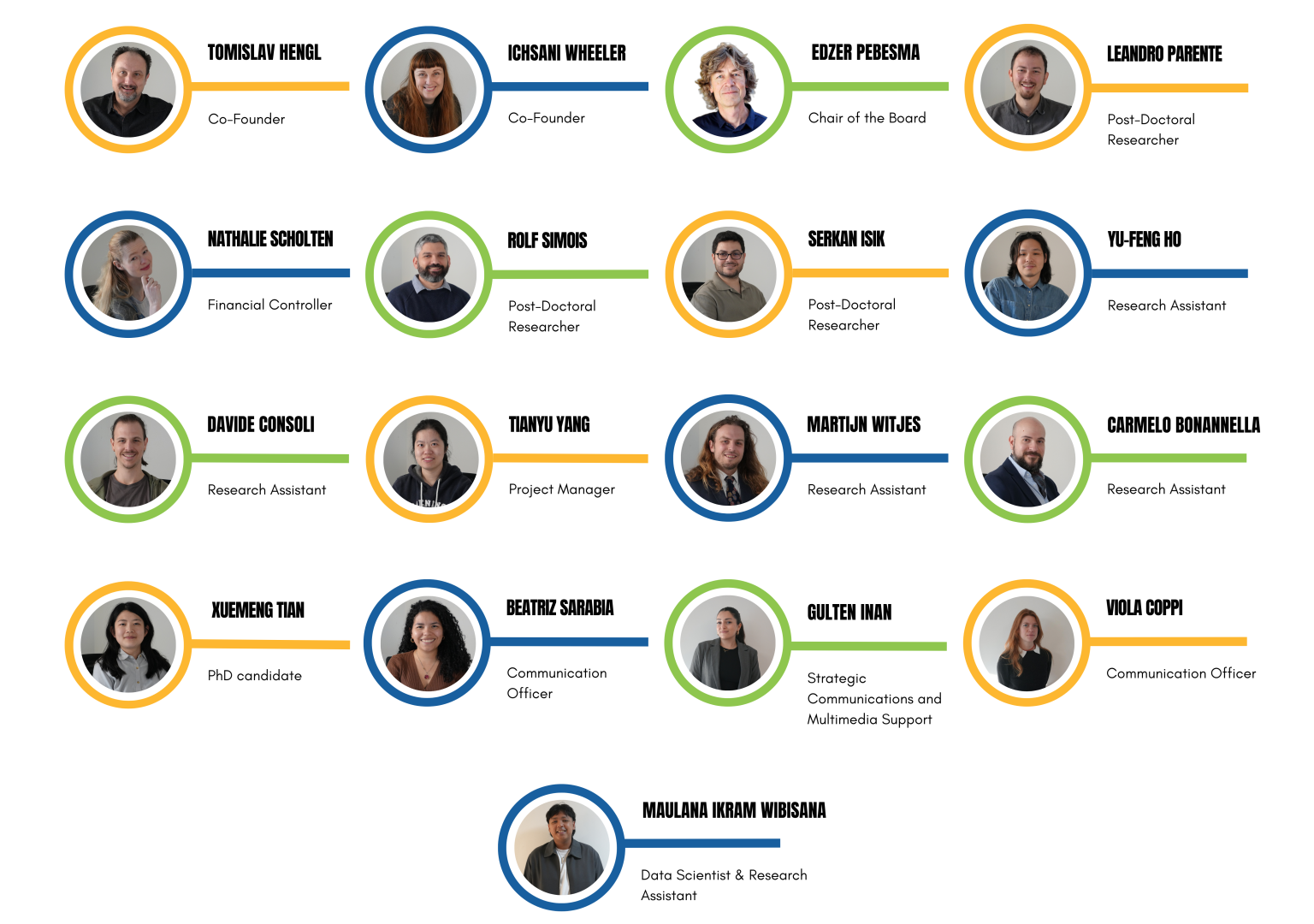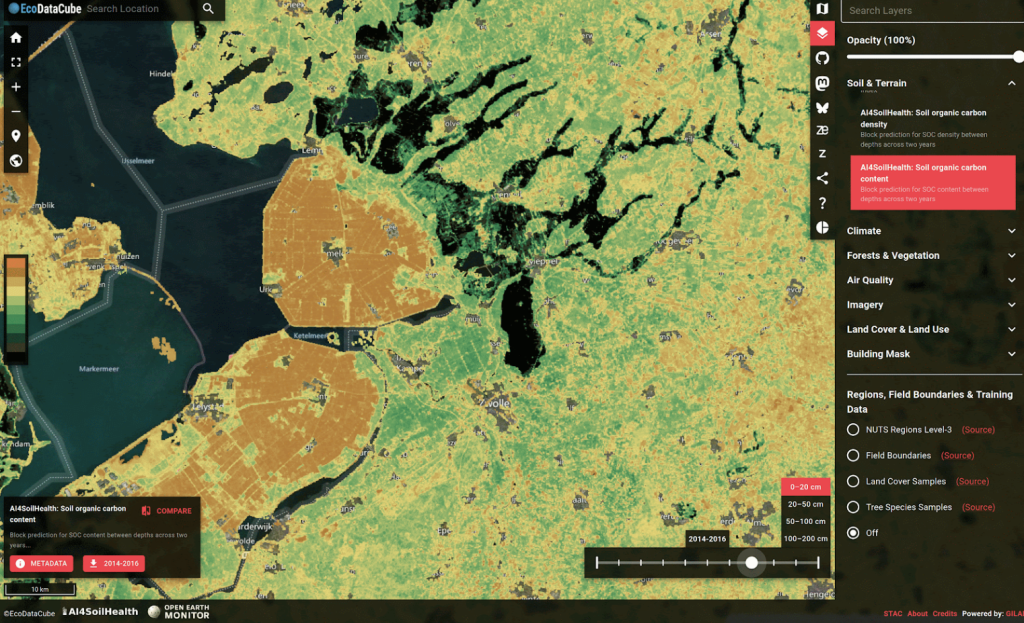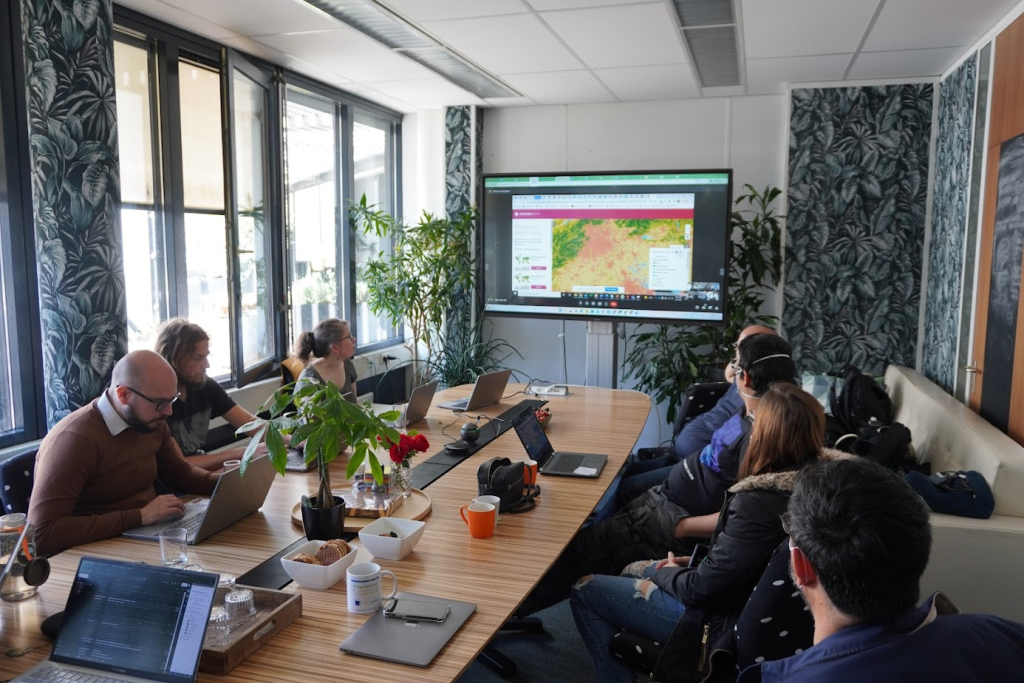Process
The selection process for positions at OpenGeoHub and/or EnvirometriX typically follows four phases:
- Registration of participants and selection of top 8–10 candidates.
- (Optional) testing of applicants using position-tailored tests. Selection of the top 4 applicants from the previous round.
- Interviews with the selection committee (physical in Wageningen or by using video conferencing). Selection of the top 1–2 applicants from the previous round.
- Assessment using a concrete assignment and the selection of the final candidate. Within two weeks after the final selection, a copy of the contract will be offered.
Other important information about the selection process:
- Applicants can apply for only one (1) of the four offered positions. Duplicate applications (hence 2nd or 3rd application by the same person) will NOT be considered.
- Please do NOT insert any information that is unverifiable or incorrect. Any such incorrect information or information that inflates your professional capabilities will be assessed in one of the selection phases and if proved incorrect might be used to disqualify you from the further process.
- For self-assessment try to be short and concise as much as possible. Avoid adding any skills that can not be verified and skills that you can not use in the production work. More accurate self-assessment (i.e. self-assessment that brings the selection committee to the same conclusions) will likely increase your chances of winning the call.
- Before submitting your application you might want to consider improving your technical skills i.e. following an online course or similar. We value any effort the applicant makes to sharpen his/her technical skills prior to the registration deadline.
- All information that you submit via these forms will be used under our general privacy policy. This implies that all private information will be kept confidential and within three (3) weeks after the selection process is closed will be permanently removed from the system.
- We expect a high number of applications hence please be patient about receiving feedback/support.
Definitions
Person registered for the position.
Finally selected applicant that will be offered a contract.
Usually a data science/data analysis problem that needs to be solved, or a design that needs to be produced within a short period of time (e.g. 48hrs). It commonly implies writing up computational notebooks, presenting results using slides and similar.
Information provided by applicants that can be independently confirmed by legal bodies and/or companies with core expertise in the field; Information compatible with the European Union standards such as education degrees, ECTS points and similar (to check your degree compatibility to the Dutch system please check https://www.enic-naric.net/ and/or expatica.com).
Subjective rating and evaluation of how well do applicant's skills and ambitions match the job description and requirements. The selection committee might request to validate any claims or information provided by the applicant at any stage of the process.
Usually 3–4 members from the Management Board and/or the scientific committee.
Commonly done using a matrix comparison (based on the job requirements) and by assigning points. Although evaluation is mainly based on an objective assessment of the candidates, subjective assessment (i.e. applicant's reactions and responses during interviews) might also be taken into account.
Daily, weekly and monthly generic work expected from the candidate to be attached to the contract and used in the evaluation of candidates (2× a year).
The organization
Location

OpenGeoHub foundation is a not-for-profit research foundation located in Doorwerth, a little village halfway between Wageningen and the city of Arnhem (population: +300,000) in a green area surrounded by forests and parks. Wageningen, where most of OpenGeoHub staff currently live, is a student town with a population of about 45,000 of which about 15,000 are students. Wageningen University’s researchers are active around the globe, and the university hosts students from over 100 countries. Wageningen is the third municipality (after Den Hague and Amsterdam) with the highest cultural diversity per square-km in the Netherlands. Wageningen University has been ranked as the world’s best in the field of Agriculture & Forestry. In the Keuzegids Universities 2021, the university ranked as the best university in the Netherlands for the seventeenth time in a row, according to national student satisfaction polls. Both Wageningen and Arnhem are reachable by public transportation (25 minutes ride) and by bicycle.

OpenGeoHub works closely with EnvirometriX Ltd (innovation, research and consultancy) which is the commercial branch. Both OpenGeoHub and EnvirometriX are start-up organizations aiming to become applied research institutes with about 25 staff in 2025 and beyond.
OpenGeoHub missions
We are experts at defining, designing, creating, and implementing spatial databases on global and regional scales as well as information and monitoring systems that are based on objectivity, transparency, and updatability. We are especially good at documenting the processing steps and boosting the predictive mapping accuracy using Open Source software solutions. By further combining pedometrics and environmetrics with econometrics, we aim at providing economic frameworks for realistic cost-benefit analysis.
We also recognize that the value of any data is in its beneficial and profitable use, so, it is really important to us that our data get widely used to do good things and that we make every possible effort to facilitate and encourage this beneficial use. Our mission is, thus, to help public organizations and businesses to base all such decisions on accurate, reliable, and accessible information.
We also believe that greening the planet and mitigating the effects of climate change are the noblest goals of modern life. Moreover, we believe that these goals need to be achieved via scientifically informed design and evidence-based decision-making involving objective data, reproducible computational notebooks, the use of state-of-the-art statistical modelling, and iterative updates. We are dedicated to increasing the capacity of people to utilize Open Source software to create new solutions and designs. We use modern technologies to do good and help transfer data and knowledge from where it is in excess, to where it is most needed.
We have done consultancy and data production work for the European Commission, UNCCD, The Nature Conservancy, World Bank, and Bill & Melinda Gates Foundation. Our core philosophy is outlined in this Medium article.
Our working style
We closely follow the Agile approach to software development and programming. We frequently use sprint teleconferences and discuss things through Mattermost, Telegram and similar. We believe that people are more productive if they get more autonomy, creative freedom and if they have a clear vision of the purpose of their work (see Daniel Pink: “Drive”). We hence often support that our employees get involved in the design and testing of solutions with their own ideas and initiatives.
Our offices are open 18/7. We have our own computing centre currently with 1400 CPU threads, 3.5 Petabyte storage and over 14TB of RAM and can quickly move ideas to plans to action. We plan to make significant investments in computing, visualization and server infrastructure in the years to come.




